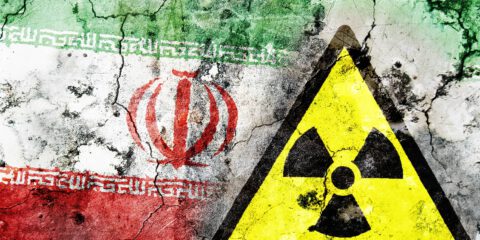The post-Abraham Accords strategic environment in the Middle East and Azerbaijan’s emergence as a common denominator for Israel and Turkey are helping the two states come together.
On September 19, the leaders of Israel and Turkey, Prime Minister Benjamin Netanyahu and President Recep Tayyip Erdoğan, met on the sidelines of the UN General Assembly in New York. In light of their previous harsh exchanges, the summit was a milestone that ushered in a more durable phase in bilateral relations.[1]
The historical visit to Ankara of Israel President Isaac Herzog in March 2022 ended the steady deterioration in Israeli-Turkish relations.
The warm hospitality of Turkey’s President Erdoğan shown to his Israeli counterpart, the growing intelligence cooperation, and the following reciprocal ministerial visits – ranging from the Foreign, Defense, and Economy ministries to the Israeli earthquake rescue and humanitarian mission – have contributed to a fragile normalization between the two countries.
The difference between the 2016 and 2022 normalizations
The normalization process of 2022 contrasts with the failed 2016 normalization, particularly at the level of bilateral summits, their frequency, and their public style. Notably, in 2022, we saw the Israeli and Turkish flags waving in the most visible way.
Normalization was declared by former Turkish prime minister Binali Yıldırım and Netanyahu in separate locations via video conferences in Ankara and Rome on June 27, 2016.[2] Erdoğan preferred then not to pose next to an Israeli flag and allowed Yıldırım to take credit as the architect of the normalization. However, on the same date, Erdoğan chose to elevate Turkey’s relations with Russia, posing next to the flags and stressing his personal role in reaching out to Russian President Vladimir Putin.[3] Erdoğan’s absence at the Israel-Turkish ceremony downgraded the importance of the bi-lateral normalization. At the same time, he minimized the political cost of relations with the Jewish state among his base by diverting public attention to the relations with Russia.
The 2016 bilateral event did not develop into a genuine normalization due to several events that angered Ankara. The proposed May 2017 bill to lower the volume of the Islamic call of prayer and the July 2017 escalation on Jerusalem’s Temple Mount, known as the “Magnometer crisis,” caused significant damage to the bilateral dialogue. However, in Turkish eyes, the American recognition of Jerusalem as Israel’s capital in 2018 was the last straw. Ankara elicited a vocal Turkish protest both against the US and Israel. Inevitably, this one-sided pro-Palestinian stance led to the normalization’s collapse, and diplomatic relations were downgraded from the ambassadorial level to chargé d’affaires.
Thus, the Netanyahu-Erdoğan summit should be considered a milestone for bilateral relations if the leadership of both countries displays the political will to deepen the ties.
Abraham Accords: Change in Turkey’s perspective of Israel
There are several reasons for the current state of normalization. The 2020 Abraham Accords and its impact on the whole region was demonstrated at the March 2022 Negev Summit, where Israel, once a regional isolated actor, sat together with its new friends in the region: the United Arab Emirates, Bahrain, Morocco, and its older friends, Egypt and the US. That strengthened Jerusalem’s position in the international arena.[4]
In contrast, Ankara became the regional pariah. Turkey’s self-imposed “Precious Loneliness” foreign policy doctrine was proven problematic. Subsequently, Turkey realized the necessity of a radical U-turn in its foreign policy, and mended fences with the UAE, Saudi Arabia, Israel, and Egypt.
Turkey’s desire to end its self-imposed “loneliness” was also derived from the deterioration of its economy. The devaluation of the Turkish lira vis-a-vis the US dollar and Ankara’s urgent need to attract foreign investment – especially from the Gulf – served as the catalyst for this U-turn in Turkish foreign policy.
Azerbaijan: The common denominator between Israel and Turkey
In addition to the developments in the Middle East, the changing balance of power in the Caucasus also played a crucial role in the Israeli-Turkish rapprochement. In an uncoordinated way, Israel and Turkey supported Azerbaijan during the 2020 Second Nagorno Karabakh War. The advanced weaponry supplied by Israel and the Turkish Bayraktar UAVs assisted Baku in defeating Armenian troops and liberating most of the occupied Nagorno Karabakh. Each country had its own reasons to support Azerbaijan. On Turkey’s side, the shared ethnic ties with Azerbaijan, which is seen as a sister state, pushed Ankara to support Baku. This policy was considered a national obligation.
Israel and Azerbaijan share similar security concerns when it comes to Iran. Mullahs in Tehran seek to de-legitimize and pose an existential threat against the secular regime in Baku and the Jewish state. Moreover, Azerbaijan is a source of energy. The two countries also collaborate in various sectors, such as agriculture and tourism. Furthermore, Azerbaijan’s Shi’ite identity also serves Israel’s image, signaling that the Jewish state can have good relations with all Muslim states, including a Shi’ite country, a clear message to the oppressed Iranian people.
Thus, the common approach to Baku brought Israel and Turkey closer. The inauguration of the Azerbaijan Embassy in Israel in March, combined with the high-level visits from the Azerbaijani side, including Foreign Minister Jeyhun Bayramov, Deputy Foreign Minister Fariz Rzayev, and visits by the Azerbaijani president’s top advisor, Hikmet Hajiyev, highlighted the depth of the relations and the importance Azerbaijan gave to the bilateral relationship. In an interview with an Israeli media outlet in September, Hajiyev openly advocated for a regional trilateral alliance among Azerbaijan, Israel, and Turkey.[5] Such a trilateral alignment will deepen rapprochement between Israel and Turkey. Azerbaijan could play a role in smoothing differences.
Conclusion
The post-Abraham Accords strategic environment in the Middle East and Azerbaijan’s emergence as a common denominator for Israel and Turkey are helping the two states come together. If Netanyahu and Erdoğan understand the dictates of realpolitik, then Azerbaijan’s proposition might become an influential new dimension in the Middle East and Caucasus.
[1] “Erdoğan, Netanyahu hold talks in rare in-person meeting,” Daily Sabah, September 20, 2023 https://www.dailysabah.com/politics/diplomacy/erdogan-netanyahu-hold-talks-in-rare-in-person-meeting [Accessed: September 20, 2023]
[2] “Israel and Turkey restore diplomatic relations after six years,” France 24, June 27, 2016 https://www.france24.com/en/20160627-israel-turkey-say-they-will-restore-diplomatic-relations [Accessed: September 20, 2023]
[3] “Adım adım Türkiye ve Rusya’nın normalleşme süreci,” TRT Haber, December 3, 2016 https://www.trthaber.com/haber/gundem/adim-adim-turkiye-ve-rusyanin-normallesme-sureci-285992.html [Accessed: September 20, 2023]
[4] “U.S., Israel and Arab states to expand cooperation in unprecedented meeting,” March 28, 2022 https://www.washingtonpost.com/national-security/2022/03/28/israel-arab-diplomats-blinken/ [Accessed: September 20, 2023]
[5] “Azerbaijani foreign policy advisor tells i24NEWS about new era of ties,” i24News, September 7, 2023 https://www.i24news.tv/en/news/israel/diplomacy/1694083931-israel-azerbaijan-hail-new-era-of-ties [Accessed: September 20, 2023]
JISS Policy Papers are published through the generosity of the Greg Rosshandler Family.
Photo: IMAGO / Xinhua / Mustafa Kaya









 - בניית אתרים
- בניית אתרים